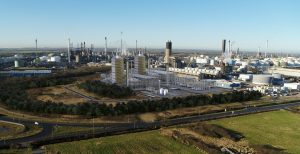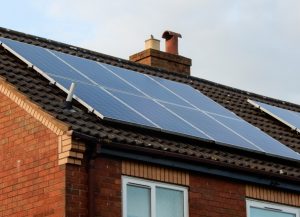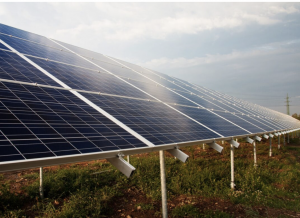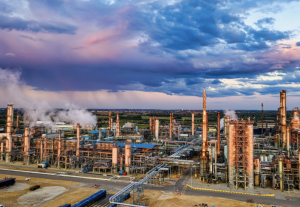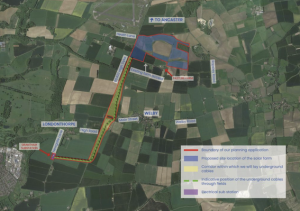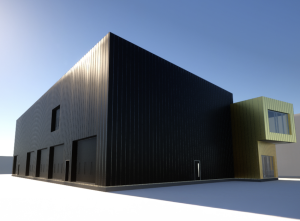Nottingham sports village hits milestone as phase three completed
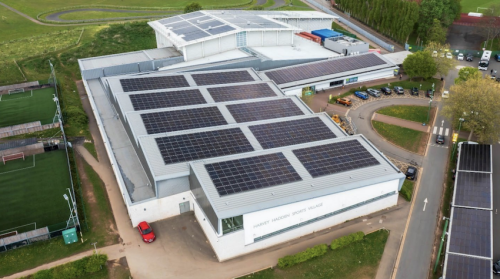
Harvey Hadden Sports Village, part of Nottingham City Council, has reached a milestone in its sustainability journey with the completion of phase three of its solar rollout.
The latest phase, bringing its total installed solar photovoltaic (PV) capacity to 571.5 kWp, added a 307.58 kWp rooftop PV system, featuring 676 bifacial panels spread across 1,365 sq m.
Backed by over £449,000 in funding from Salix Finance, the project supports Nottingham City Council’s broader carbon reduction strategy.
With this expansion, Harvey Hadden is what is believed to be one of the UK’s largest solar-powered leisure centres.
Jorge Santana, head of service for environment and sustainability at Nottingham City Council said: “With one of the largest solar installations on a UK leisure centre, Harvey Hadden is leading the way for carbon-neutral public infrastructure. By integrating solar power with the centre’s operations—including a system that uses surplus energy to heat the swimming pool—we’re cutting emissions, lowering energy costs, and reducing reliance on fossil fuels. This project was funded in part by the Salix Recycling Fund, enabling us to reinvest previous savings into impactful, future-facing carbon reduction solutions.”
The project, delivered in stages since 2015, reflects a long-term approach to reducing the centre’s reliance on grid electricity.
The initial phase began with the installation of a 67.2 kWp solar carport, the largest of its kind in the UK at the time, covering 40 parking bays and producing approximately 50,772 kWh of energy annually.
In 2018, a second system was added to the roof, contributing an additional 200 kWp and further cutting the facility’s carbon footprint.
The most recent upgrade includes a 307.58 kWp system made up of 676 bifacial panels spanning 1,365 square metres.
This system is expected to produce roughly 257,752 kWh each year and save around 60 tonnes of CO₂ annually.
Over the course of its 30-year lifespan, this phase is projected to reduce electricity costs by over £3.66m and save an estimated £315,907 in gas.
Taken together, the three solar systems now generate more than 500,000 kWh annually, enough to meet a significant portion of the centre’s energy demand and equivalent to the power usage of over 120 typical homes.
The project was delivered through collaboration between Nottingham City Council’s Environment and Sustainability Division and partners, including Salix Finance, Lindum Group, UK Alternative Energy, and the Scape Framework.
On-site staff and technical specialists such as Reshma Michael, senior energy project officer, and Eniola Olaniran, principal solar energy lead, played pivotal roles in delivering the initiative.
Key support was also provided by James Hipperson and Mike Lyon from the carbon reduction projects and policy services team, who helped secure and manage the Salix Recycling Fund used for this upgrade.
The solar installation was procured through the Scape Regional Construction Framework and was designed to meet high technical standards, including ENA G99, BS EN 62305 lightning protection, and MCS certification.
Lindum Group led the installation, working in collaboration with UK Alternative Energy and Empire Scaffolding GM Ltd.
Cllr Sam Lux said: “Harvey Hadden Sports Village is one of the most energy-intensive buildings that we own, so it has been at the forefront of our efforts to decarbonise. I’m proud that we have taken a significant step forward, installing a new 307.58-kilowatt rooftop solar PV system, including an additional 676 state-of-the-art bifacial panels generating clean electricity each year starting this month. These savings aren’t just environmental, they support our ambition for financial sustainability and make the centre more resilient for the future. It’s a great example of what Nottingham is doing to lead the way in decarbonising public buildings and investing in a greener city.”
Richard Shaw, director at Lindum Group said: “This has been a great project that showcases what’s possible when smart design meets sustainability goals. Harvey Hadden is now equipped with a state-of-the-art clean energy system that will deliver long-term cost and carbon savings for decades to come.”

